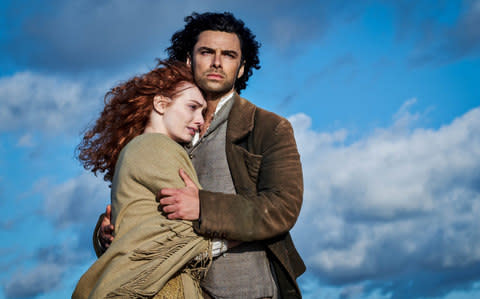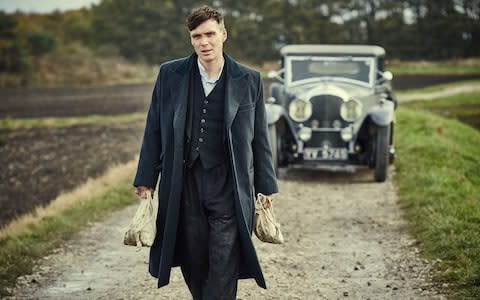BBC loses plot to offer busy viewers drama without the commitment

From period dramas to contemporary soap operas, the art of the television writer is to interweave characters and storylines into a satisfying whole.
But as our lives get busier, and as settling down in front of the TV set for an hour gives way to snatching 20 minutes of a programme on a mobile phone during the daily commute, the BBC has plans to revolutionise viewing.
The corporation is trialling “object-based media”, in which viewers without the time or inclination to watch a full episode will instead be offered a bite-sized mini-drama focusing on the storyline or characters of their choice.

Want to catch up on the romance between Ross Poldark and Demelza, but have less interest in the rest of the cast? Gripped by a life-or-death plot in Holby City but bored by the domestic dramas of the medical staff? In future, the programme content could be tailor-made for you.
The BBC's research and development department has already made a prototype based around Peaky Blinders, the BBC Two gangster drama. It pulled out five key storylines, including the love affair between Tommy Shelby (Cillian Murphy) and Grace Burgess (Annabelle Wallis).

Research with viewers and listeners “showed that the most important things for them were the stories and the characters… rather than the traditional episode-centric presentation," the BBC said.
In a demonstration this week, staff were told that isolating storylines and characters could be applied in future to Casualty or Holby City, and that episodes of EastEnders could be turned into a ‘highlights’ package for viewers who didn’t want to sit through an entire 30 minutes.

Jon Page, who leads the research and development department, said: "Broadly speaking, programmes have been a half-hour or hour-long thing, and the same for everybody who watches them. The principle of object-based broadcasting is that you chop up the components of that thing - so pictures, sound, data - and the moments in them.
"It's about experiencing that particular combination that's right for you, making content that's flexible and responsive and more personal."
Peaky Blinders was chosen for the trial because it had a relatively complex plot, and because there had been previous series. "It was a way to rapidly catch up with what had happened before. And when a series is tortuously complicated, it's a means of helping with that."

In the case of soaps, Page explained: "One example of where this would be useful - imagine coming back from your holidays and you want to spend an hour catching up with what's been happening in EastEnders, but not to watch all the episodes."
The format is designed for viewing on mobile phones or tablets. The most recent figures from Ofcom show that 35 per cent people watch programmes on a smartphone, rising to 64 per cent for those aged 16-24.
One idea being explored by the BBC is tailoring content to the length of an individual user's journey. Page said: "It's the idea of a 'commute companion'. You know that your Tube journey is 32 minutes long, so you would be able to have 32 minutes of content downloaded on your phone from the office wifi."
In the BBC’s factual department, short clips designed to be shared on social media have been a big success. A four-minute clip of Rio Ferdinand: Being Mum and Dad, in which the former footballer discussed bereavement, was viewed by 17 million people.

 Yahoo News
Yahoo News 
